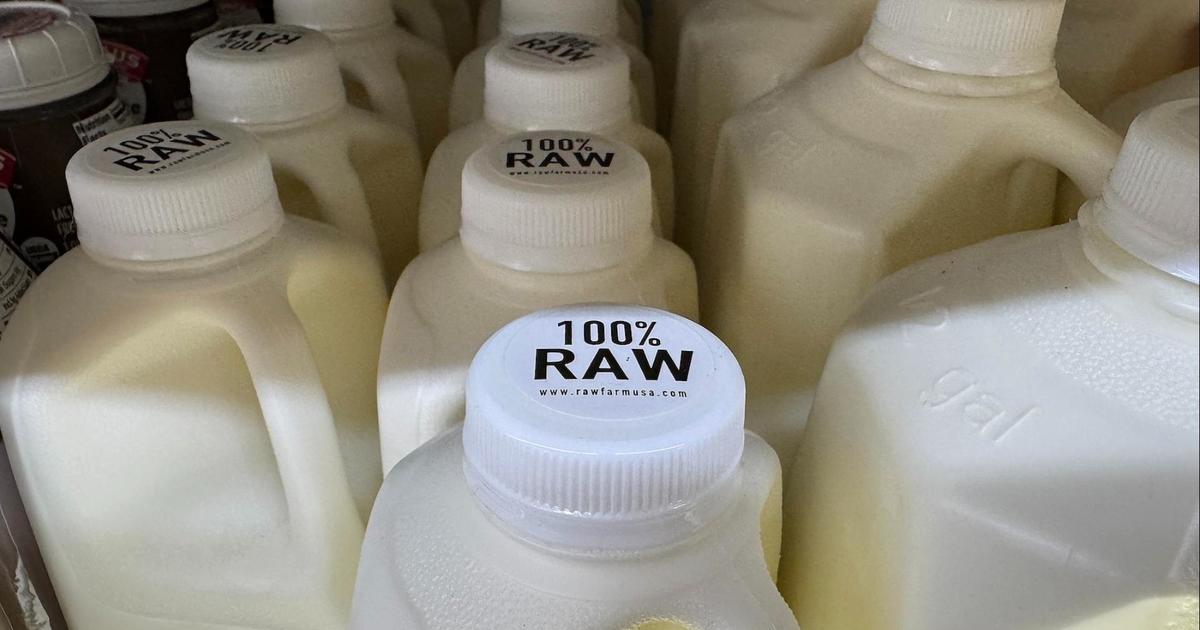A Florida dairy farm was named in a lawsuit filed by a woman who claims she lost her unborn child after getting sick while caring for her toddler, who also got sick after drinking raw milk.
Rachel Maddox is suing Keely Farms Dairy, a New Smyrna Beach dairy farm, which state health officials have tied to at least 21 cases of E. coli and Campylobacter bacteria sickness from raw milk consumption, Orlando’s CBS News affiliate WKMG reported. Six of the 21 patients were children under the age of 10, seven were hospitalized and at least two cases have resulted in severe complications, according to the state-issued warning.
A mom’s unborn child died after she got sick cleaning up toddler’s illness, the lawsuit says
Maddox’s filing demands a jury trial on compensatory damages for permanent physical and mental injuries incurred “as a direct and proximate result of Defendants’ conduct,” the lawsuit states.
The lawsuit, which also names the market where Maddox allegedly bought the milk, was filed Wednesday in Seminole County and claims that Keely Farms shipped milk that contained the bacteria, WKMG reported.
“I became very ill and I mean the sickest I’ve ever been in my life,” Maddox told the news station. “I came really close to dying and our [unborn] son did die. The doctors told me that I was lucky to be alive.”
According to the lawsuit, Maddox was allegedly unaware of any potential dangers while purchasing the milk in June from an organic, natural food store. When she asked about the packaging’s label that “said something to the effect [of] ‘for consumption by animals,'” she was allegedly told “that was a technical requirement to sell ‘farm milk,'” the lawsuit claims.
Maddox told WKMG she had bought the raw milk on and off for months, and while she never drank it, her toddler and other family members had before without any issues.
Maddox’s toddler drank the milk on June 8 and experienced “diarrhea, nausea, vomiting, fever, abdominal pain, chills, and resultant dehydration,” prompting her to take the child to a hospital. The lawsuit called the trip to the hospital “the first of what would be three emergency room visits and hospitalizations in the next several weeks,” WKMG reported.
About five days later, Maddox sought medical treatment for “ongoing diarrhea, vomiting, fever, abdominal pain, and chills that led to septic shock and severe dehydration,” the lawsuit stated. According to the lawsuit, tests returned positive for Campylobacter, which she was told was contracted while caring for her toddler.
“I contracted the bacteria from cleaning up the diarrhea and vomiting,” Maddox told WKMG. “As a mom, you get a lot of stuff on you when your kid is sick, and I became ill by contracting the bacteria that way.”
According to the lawsuit, Maddox’s 20-week-old unborn child died on June 18 and she was readmitted to the hospital with sepsis. She was hospitalized multiple times during ongoing treatment.
WKMG reached out to Keely Farms Dairy last week for a comment, but its representatives did not want to comment beyond stating that their milk is not made for human consumption.
A Facebook post on Keely Farms’ page said in part that “Raw milk is sold ‘Not for human consumption’ and as ‘animal feed,'” according to WKMG. A separate now-deleted post on the page from Wednesday also included images depicting what Keely Farms allegedly described as “Last week’s milk test results from 2 labs.”
What is Florida’s stance on raw milk?
In an X post shared Tuesday by Florida Surgeon General Dr. Joseph Ladapo, he said that “Floridians have the freedom to make informed health choices,” while sharing links to the state’s warnings.
“I support the decision to consume raw milk when sought for potential health benefits and protective factors,” he said. “Be aware of your source and know the risks.”
Although it is illegal to sell raw milk for human consumption in Florida, it can be sold in the state if it’s labeled as a pet food. Raw milk has been promoted by online wellness influencers and raw food advocates, boosting sales in recent years, but public health officials say it can be risky.
The Florida Department of Health noted in its statement that “many people consume raw milk safely.” But it also advised, “Floridians should be aware of potential risks associated with consumption, which may vary depending on the source of milk. The producer’s handling of raw milk and milking procedures are vital in prevention of contamination.”
Raw milk health concerns
The Food and Drug Administration (FDA) and the Centers for Disease Control and Prevention (CDC) say raw milk can carry life-threatening bacteria, such as E. coli, Campylobacter, Listeria or Salmonella.
These can cause symptoms including diarrhea, vomiting and stomach cramps. Severe cases can result in a condition called hemolytic uremic syndrome, or HUS, which can lead to kidney failure.
Since 1987, 143 outbreaks have been linked to raw milk or raw milk products, some involving miscarriages, stillbirths, kidney failure and even deaths, according to the FDA.
Pasteurization — a process of heating the milk — kills these bacteria. Pasteurization is required by federal law for any milk sold across state lines. Some individual states also restrict or ban the sale of raw milk, but others allow it.
In an interview with CBS News Miami earlier this year, Mark McAfee, founder of one of the world’s largest raw milk producers and head of an advocacy group called the Raw Milk Institute, claimed raw milk offers health benefits such as bioactives that boost the immune system. McAfee sells his raw milk legally in California, where no state law prohibits its sale.
But the CDC says such claims are unfounded. “Pasteurized milk offers the same nutritional benefits without the risks of raw milk consumption,” the agency says.
contributed to this report.



